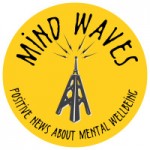It’s Children’s Mental Health Week. Children’s mental health isn’t something that we talk that much about at Mind Waves. Our volunteers are adults and they tend to talk about their futures, rather than focusing on the past.
However, around half of adults with mental health problems first experienced their symptoms as children, 75% before their mid-twenties. The idea that we can separate child and adult mental health is unrealistic. And it’s in childhood that we have the best chance of changing things, whether that’s about teaching acceptance to reduce stigma or building resilience in individuals and communities.
This year, Children’s Mental Health Week focuses on building resilience- and that’s a topic that our Community Correspondents know a lot about. Of course, everyone has a different understand of what that concept means. Back in 2014, we asked that question: what does resilience mean to you?
We invited people to submit photographs to our competition and we were amazed by how many interpretations of resilience people came up with- and by how beautiful they were. You can see the winning and shortlisted entries in the slideshow above.
We also asked people to submit their ideas in other ways, as blogs or videos. Here’s what they told us.
- Dr Pete Seaman explained how we can build resilient communities
Real resilience is about adaptability and community, not individual strength
- Our Community Correspondent Edward Davies gave us his personal experience of building resilience
Resilience isn’t looking on the bright side; it’s telling your demons to take a hike
- Our partners at Radiant and Brighter made this video about what resilience means in different languages and cultures
What does resilience mean in your language? - This animation from @theGCPH gives a more in-depth definition
What does resilience mean?


No comments yet.